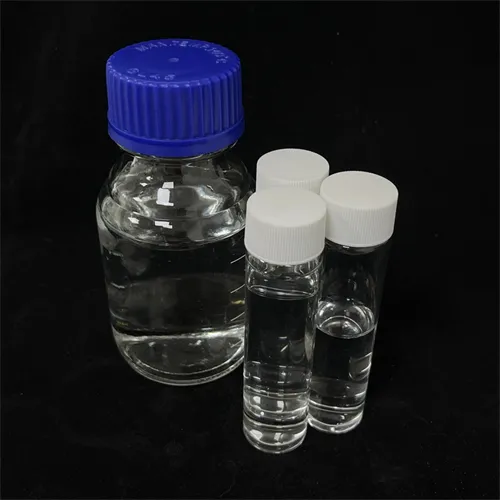Warning: Undefined array key "title" in /home/www/wwwroot/HTML/www.exportstart.com/wp-content/themes/1198/header.php on line 6
Warning: Undefined array key "file" in /home/www/wwwroot/HTML/www.exportstart.com/wp-content/themes/1198/header.php on line 7
Warning: Undefined array key "title" in /home/www/wwwroot/HTML/www.exportstart.com/wp-content/themes/1198/header.php on line 7
Warning: Undefined array key "title" in /home/www/wwwroot/HTML/www.exportstart.com/wp-content/themes/1198/header.php on line 7
- Afrikaans
- Albanian
- Amharic
- Arabic
- Armenian
- Azerbaijani
- Basque
- Belarusian
- Bengali
- Bosnian
- Bulgarian
- Catalan
- Cebuano
- China
- China (Taiwan)
- Corsican
- Croatian
- Czech
- Danish
- Dutch
- English
- Esperanto
- Estonian
- Finnish
- French
- Frisian
- Galician
- Georgian
- German
- Greek
- Gujarati
- Haitian Creole
- hausa
- hawaiian
- Hebrew
- Hindi
- Miao
- Hungarian
- Icelandic
- igbo
- Indonesian
- irish
- Italian
- Japanese
- Javanese
- Kannada
- kazakh
- Khmer
- Rwandese
- Korean
- Kurdish
- Kyrgyz
- Lao
- Latin
- Latvian
- Lithuanian
- Luxembourgish
- Macedonian
- Malgashi
- Malay
- Malayalam
- Maltese
- Maori
- Marathi
- Mongolian
- Myanmar
- Nepali
- Norwegian
- Norwegian
- Occitan
- Pashto
- Persian
- Polish
- Portuguese
- Punjabi
- Romanian
- Russian
- Samoan
- Scottish Gaelic
- Serbian
- Sesotho
- Shona
- Sindhi
- Sinhala
- Slovak
- Slovenian
- Somali
- Spanish
- Sundanese
- Swahili
- Swedish
- Tagalog
- Tajik
- Tamil
- Tatar
- Telugu
- Thai
- Turkish
- Turkmen
- Ukrainian
- Urdu
- Uighur
- Uzbek
- Vietnamese
- Welsh
- Bantu
- Yiddish
- Yoruba
- Zulu
ਅਕਤੂਃ . 13, 2024 16:33 Back to list
Towards a Sustainable Future for Adipic Acid Through Bio-Based Innovations and Solutions
Paving the Way for a Sustainable Future Bio-Based Solutions for Adipic Acid Production
In the quest for sustainability, the global chemical industry faces significant challenges, particularly in the production of widely used commodities such as adipic acid. Traditionally derived from petrochemical sources, adipic acid plays a crucial role in manufacturing nylon, polyurethanes, and other plastics. However, the environmental impacts of its traditional production methods, including greenhouse gas emissions and dependence on fossil fuels, have prompted a shift towards bio-based alternatives. This article explores the potential of bio-based solutions for adipic acid production and their implications for a sustainable future.
Adipic acid is primarily produced through a process involving the oxidation of cyclohexane, which is derived from petroleum. This process not only contributes to resource depletion but also results in significant emissions of nitrous oxide, a potent greenhouse gas. As the world prioritizes sustainable practices, researchers and companies are exploring bio-based pathways for adipic acid production, harnessing renewable resources such as biomass, agricultural waste, and even microorganisms.
One promising approach involves the fermentation of sugars derived from biomass. Through metabolic engineering, microorganisms can be engineered to convert glucose or other sugars into adipic acid. This biobased synthetic route not only utilizes renewable feedstocks but also minimizes harmful emissions associated with traditional methods. Implementing this technology at scale could lead to a significant reduction in carbon footprint, supporting the industry's commitment to sustainable development.
sustainable future of adipic acid: bio-based solutions and ...

Several research initiatives and companies have emerged to facilitate this transition. For instance, innovative bioprocessing techniques are being developed that integrate enzymatic and microbial processes to enhance the yield and efficiency of adipic acid production. These approaches can transform agricultural residues, such as corn stover or sugarcane bagasse, into valuable adipic acid, creating a circular economy where waste is repurposed into valuable products.
Moreover, the implementation of bio-based adipic acid production aligns with global sustainability goals, including the United Nations Sustainable Development Goals (SDGs). By reducing reliance on fossil fuels and promoting the use of renewable resources, the chemical industry can contribute to climate action and foster economic growth through the development of new biobased industries.
Despite these promising developments, several challenges remain. The economic viability of bio-based adipic acid production is a critical factor that needs to be addressed. While advancements in biotechnology hold great potential, the scalability and cost-effectiveness of these processes must be proven to encourage widespread adoption. Additionally, regulatory frameworks and consumer awareness play crucial roles in facilitating this transition, as environmental impact and sustainability become key criteria for industry stakeholders.
In conclusion, the transition towards bio-based adipic acid production presents a significant opportunity for the chemical industry to enhance sustainability and reduce environmental impacts. By embracing innovative bioprocessing technologies and renewable feedstocks, we can move towards a circular economy that prioritizes ecological responsibilities. As research and development accelerate, it is imperative for industry stakeholders to collaborate and invest in these sustainable solutions. Ultimately, the collective effort towards bio-based alternatives will pave the way for a greener, more sustainable future, aligning with global efforts to combat climate change and promote a more responsible approach to production.
Latest news
-
Certifications for Vegetarian and Xanthan Gum Vegetarian
NewsJun.17,2025
-
Sustainability Trends Reshaping the SLES N70 Market
NewsJun.17,2025
-
Propylene Glycol Use in Vaccines: Balancing Function and Perception
NewsJun.17,2025
-
Petroleum Jelly in Skincare: Balancing Benefits and Backlash
NewsJun.17,2025
-
Energy Price Volatility and Ripple Effect on Caprolactam Markets
NewsJun.17,2025
-
Spectroscopic Techniques for Adipic Acid Molecular Weight
NewsJun.17,2025

